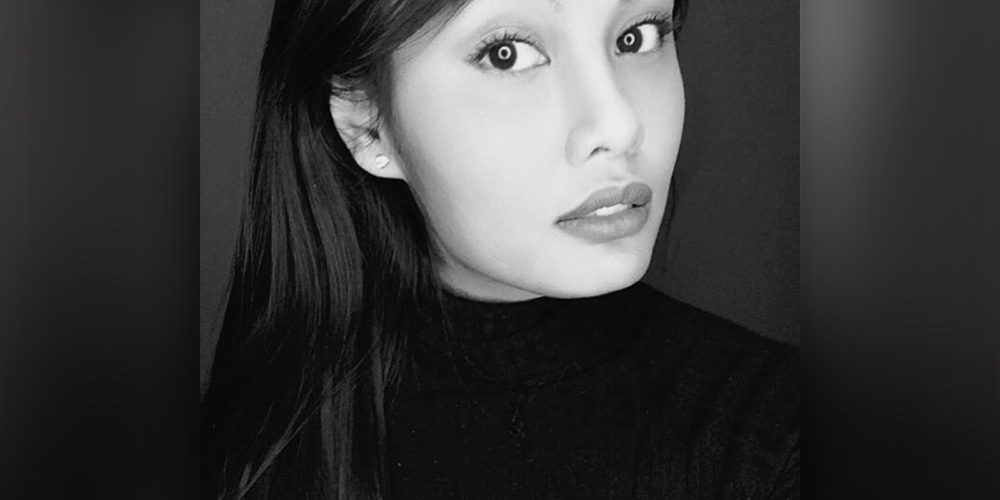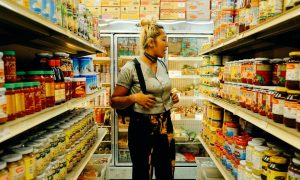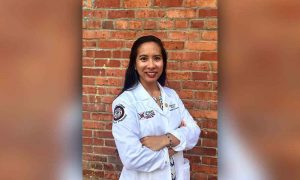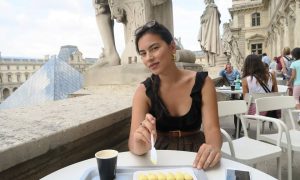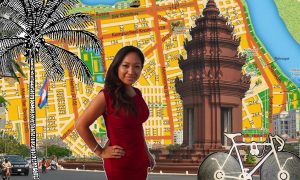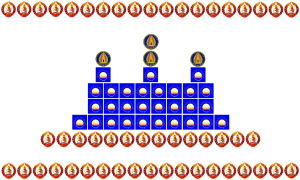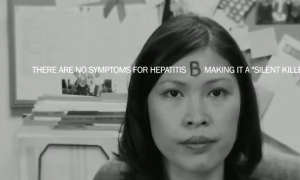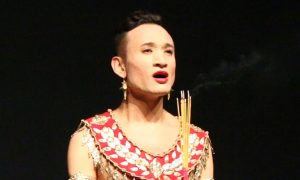I am Sadi Thann, 28, and I work for a social services non-profit in Nome, Alaska. My department works closely with social workers, school counselors, teachers and community organizations to advocate for and strengthen families in rural Alaska.
I grew up two hours outside of Boston. My biological family emigrated from Cambodia to the United States in 1991. When I was six, my siblings and I were placed into foster care. At that time my adoptive father was my therapist. He adopted my brother and I. I am one of eight siblings separated into different homes. This was very difficult for us because we were all very close to each other. I loved growing up celebrating Christmas and Hanukkah since my adoptive family were Jewish. The biggest change entering into my new family was going from being the oldest sibling to the third youngest sibling.
My connection to anything outside of Nome is pretty limited, so my relationship to the Khmer community is non-existent. In the two years I spent living in Alaska, I have not met another Cambodian. And most of the native families have never heard of or seen Cambodians before, which is similar because I never met or seen an Eskimo before until I moved to Nome.
I did not grow up with a strong Khmer identity, but I have always had fierce pride in my roots. I gravitated towards people, organizations and activities where I felt like I could represent my community and people well. In high school and at UMass Amherst, I joined the Cambodian Student Association. And when I could, I would sneak away to see my Cambodian mom who would cook lots of Khmer food. I have never lost my appetite for Khmer cuisine.
Working with foster children and native families in Alaska has ignited my passion for preventing unnecessary removals and family reunification. One of the scariest experiences of foster care was having no control over a situation. I remember sharing with my social worker when my brother and I were placed in an abusive foster home, and asking her where my other siblings were, but she did not listen to me or tell me where they were.
That was when I first experienced the fear of people who had the power to make life-changing decisions for me but would not listen to me. My Cambodian parents were also terrified of social workers because they could not speak English and they were intrusive strangers from a different culture.
I recognize this same fear with my own cases. I hope that I can bring a transparent and respectful relationship to the parents and families I work with. Inuit culture has taught me a very important lesson on strengthening families: it takes an entire village to raise a child, and not one of us can do it alone.
For now, my immediate plans are to take the LSAT and apply for law school. My passion for protecting women and children’s rights has grown stronger through the years. I’m still figuring out how I can afford to do all of this!
On my bucket list for the next ten years is to continue traveling to as many places around the world as possible. I hope to visit Cambodia many times with friends and family. I hope I return the healing experiences I gain from living in Alaska to different families.
—
Follow Sadi Thann | Instagram


